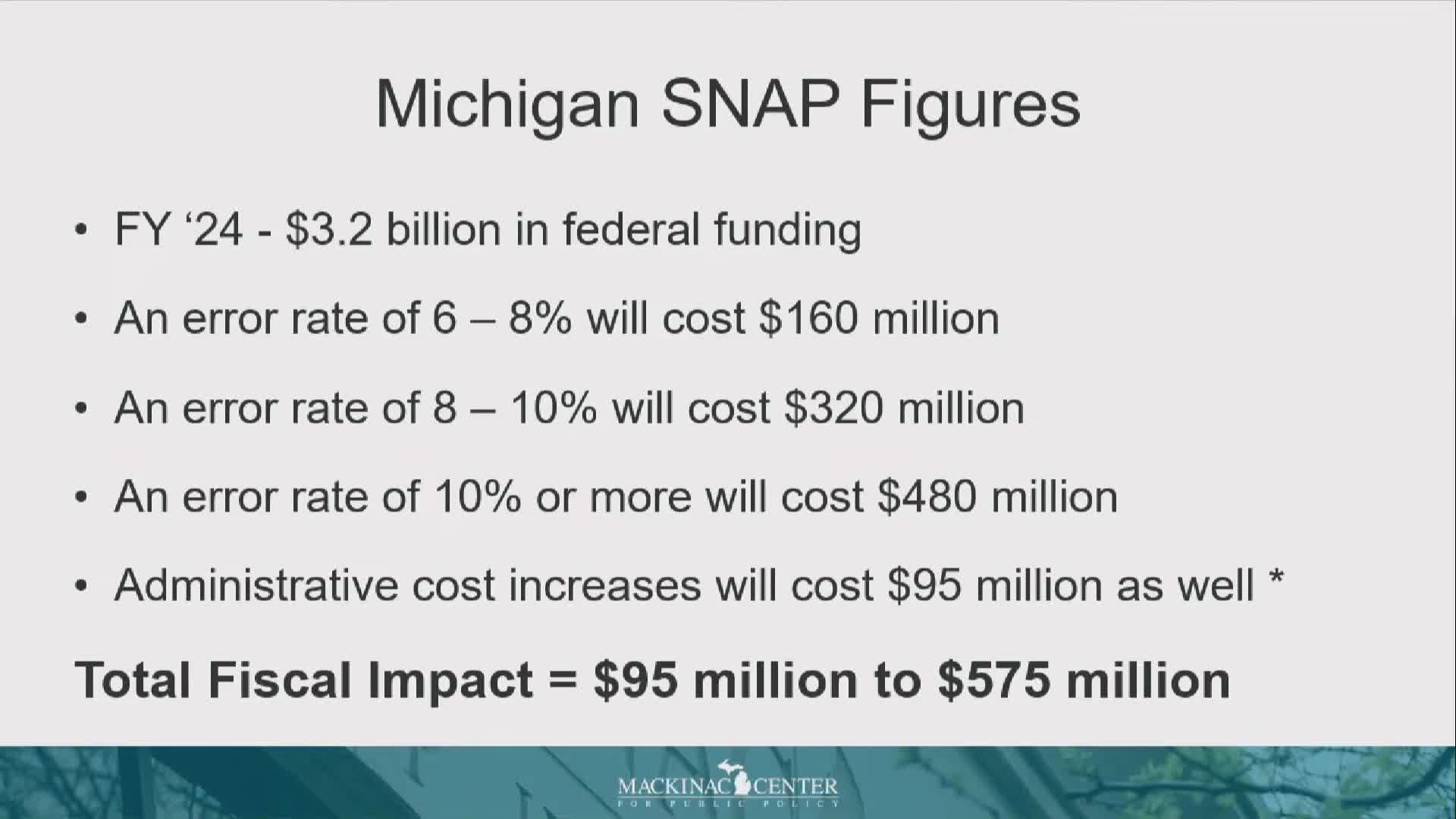Committee Addresses $575M SNAP Benefit Errors and Fraud Concerns
September 19, 2025 | 2025 House Legislature MI, Michigan
This article was created by AI summarizing key points discussed. AI makes mistakes, so for full details and context, please refer to the video of the full meeting. Please report any errors so we can fix them. Report an error »

The Oversight Subcommittee on State and Local Public Assistance Programs convened on September 18, 2025, to address critical issues surrounding the management and integrity of public assistance programs in Michigan. A significant focus of the meeting was the financial exposure related to error rates in the Supplemental Nutrition Assistance Program (SNAP) and other public assistance initiatives.
Committee members discussed the potential maximum exposure of $575 million, which reflects the current federal funding rates and the penalties that could be incurred due to errors in program administration. The conversation highlighted several key factors contributing to these error rates, including issues with SNAP benefit tracking, electronic benefit transfer card fraud, and technical glitches that can occur when cards fail to read properly.
Additionally, the committee examined the prevalence of retailer application fraud and errors made by households, as well as misconduct in the quality control processes conducted by state agencies. A report from the Government Accountability Office (GAO) was referenced, which detailed variances found during quality control reviews. The GAO identified three main categories of discrepancies between original certifications and subsequent determinations.
The discussions underscored the importance of improving oversight and accountability within public assistance programs to mitigate financial risks and enhance service delivery to residents in need. The committee's findings will likely inform future policy recommendations aimed at strengthening the integrity of these essential programs.
Committee members discussed the potential maximum exposure of $575 million, which reflects the current federal funding rates and the penalties that could be incurred due to errors in program administration. The conversation highlighted several key factors contributing to these error rates, including issues with SNAP benefit tracking, electronic benefit transfer card fraud, and technical glitches that can occur when cards fail to read properly.
Additionally, the committee examined the prevalence of retailer application fraud and errors made by households, as well as misconduct in the quality control processes conducted by state agencies. A report from the Government Accountability Office (GAO) was referenced, which detailed variances found during quality control reviews. The GAO identified three main categories of discrepancies between original certifications and subsequent determinations.
The discussions underscored the importance of improving oversight and accountability within public assistance programs to mitigate financial risks and enhance service delivery to residents in need. The committee's findings will likely inform future policy recommendations aimed at strengthening the integrity of these essential programs.
View full meeting
This article is based on a recent meeting—watch the full video and explore the complete transcript for deeper insights into the discussion.
View full meeting
